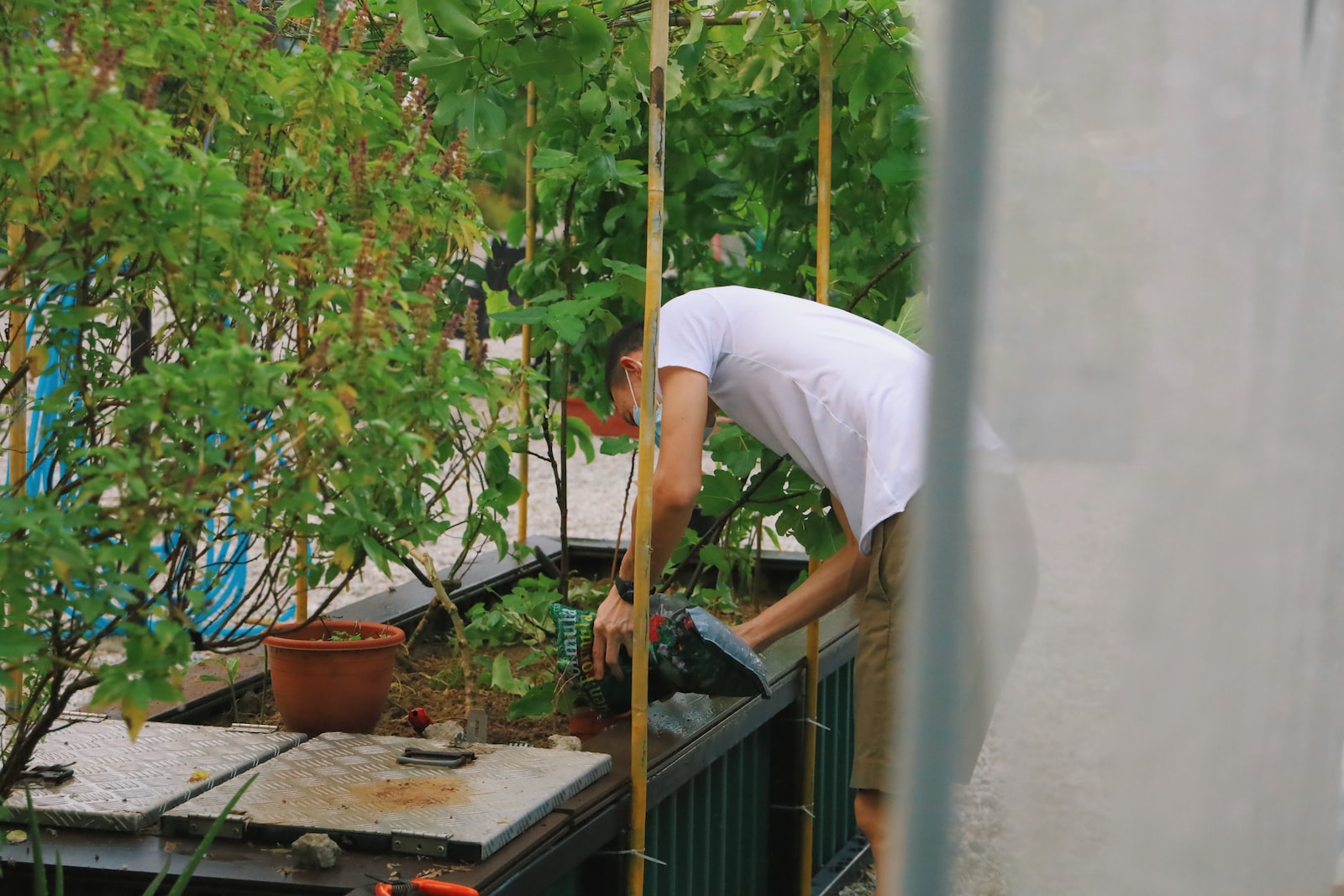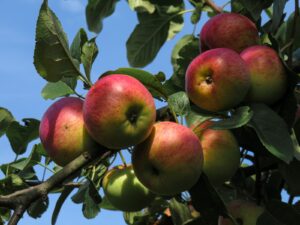Urban farming, also known as urban agriculture, is a practice that involves growing and producing food within cities and urban areas. This approach to food production has gained significant attention in recent years due to its potential to promote Sustainability, improve food security, and create green spaces in urban environments. In alignment with the United Nations Sustainable Development Goal of creating sustainable cities and communities, city agriculture plays a crucial role in addressing the challenges of global food production and consumption.
Benefits of Urban Farming in Cities
Promoting local food production and food security
Suburban cultivation initiatives contribute to the production of fresh and nutritious food in proximity to urban communities. By reducing the distance between the source of food production and consumption, urban farming helps to enhance local food security. Additionally, suburban cultivation allows for the cultivation of a variety of crops, including fruits, vegetables, and herbs, providing urban dwellers with access to a diverse and healthy diet.
Reducing dependence on long-distance food transportation
Traditional industrial agriculture often relies on long-distance transportation of food, which contributes to carbon emissions and environmental degradation. City agriculture minimizes the need for extensive transportation networks by bringing food production closer to consumers. This reduces the Carbon Footprint associated with food transportation and supports the development of more sustainable food systems.
Mitigating the environmental impact of industrial agriculture
Industrial agriculture practices, such as the use of synthetic fertilizers and pesticides, can have detrimental effects on the Environment. Suburban cultivation, on the other hand, promotes organic and sustainable farming methods that minimize the use of harmful chemicals. By adopting practices like composting, rainwater harvesting, and integrated pest management, urban farmers contribute to the conservation of natural resources and the protection of biodiversity.
Creating green spaces and improving urban aesthetics
One of the notable benefits of suburban cultivation is its ability to transform vacant lots, rooftops, and unused spaces into thriving green areas. These urban farms and gardens not only provide fresh produce but also contribute to the overall beautification and greening of cities. Furthermore, urban green spaces have been linked to improved mental health, reduced urban heat island effect, and increased biodiversity.
Types of Urban gardening Initiatives
Rooftop gardens and vertical farming
Rooftop gardens utilize the available space on rooftops of buildings for farming purposes. This approach maximizes the use of vertical space and allows for the cultivation of a wide range of crops. Vertical farming takes this concept further by utilizing vertical structures and hydroponics or aeroponics systems to grow plants without soil. These innovative techniques are particularly suitable for urban environments with limited land availability.
Community gardens and allotments
Community gardens are shared spaces where individuals or groups come together to cultivate crops collectively. These gardens foster a sense of community, promote social interaction, and provide a platform for knowledge sharing and skill development. Allotments, on the other hand, are individual plots of land within a community garden where individuals can grow their own produce. Both community gardens and allotments contribute to the local food production and strengthen community bonds.
Indoor farming and hydroponics
Indoor farming involves the cultivation of crops in controlled environments such as greenhouses or vertical farms. This approach allows for year-round production and protection against adverse weather conditions. Hydroponics, a subset of indoor farming, is a soilless cultivation method that utilizes nutrient-rich water solutions to grow plants. Indoor farming and hydroponics offer opportunities for Urban gardening in areas with limited outdoor space.
Edible landscapes and urban orchards
Edible landscapes integrate food-producing plants into urban landscapes, such as parks, streetscapes, and public spaces. These spaces not only provide fresh produce but also create visually appealing and sustainable environments. Similarly, urban orchards focus on the cultivation of fruit-bearing trees within urban areas, providing communities with a source of fresh fruit and enhancing urban biodiversity.
Success Stories of Urban Farming Projects
Examples of successful city agriculture initiatives worldwide
In cities around the world, Metropolitan farming projects have demonstrated their potential to transform communities and improve food access. For instance, the Brooklyn Grange in New York City operates rooftop farms across multiple locations, producing over 80,000 pounds of organic vegetables annually. In Singapore, the Sky Greens vertical farm utilizes innovative technology to maximize food production in a limited space.
Case studies of urban farms providing fresh produce to local communities
Urban farms have played a crucial role in addressing food deserts, which are areas with limited access to fresh and affordable food. In Detroit, Michigan, the nonprofit organization, D-Town Farms, has established urban farms in vacant lots, providing fresh produce to underserved communities. These projects not only improve food access but also create employment opportunities and promote community empowerment.
Impact of urban farming on job creation and economic development
Urban farming initiatives have the potential to generate employment opportunities and support local economic development. As the demand for locally produced food increases, urban farms create jobs in areas such as farming, distribution, marketing, and education. Additionally, Urban gardening projects often stimulate entrepreneurship and foster the growth of local food-related businesses.
Overcoming Challenges in Urban Farming
Limited access to land and space in urban areas
One of the primary challenges in Metropolitan farming is the scarcity of available land and space. However, innovative solutions such as vertical farming, rooftop gardens, and the utilization of vacant lots can help overcome this challenge. Collaborations between local governments, private landowners, and community organizations can facilitate access to land and support the expansion of urban farming projects.
Dealing with soil contamination and pollution
Urban areas often face soil contamination and pollution due to previous industrial activities. Urban farmers employ various techniques to remediate and regenerate contaminated soil, such as soil testing, phytoremediation, and the use of raised beds or containers with clean soil. These practices ensure the production of safe and healthy food in urban environments.
Addressing legal and regulatory barriers
Town agriculture practices are subject to various legal and regulatory frameworks that vary across different cities and regions. Local governments play a crucial role in creating supportive policies, zoning regulations, and incentives for Town agriculture. Engaging with policymakers and advocating for urban farming-friendly regulations can help overcome legal barriers and promote the growth of urban farming initiatives.
Educating and engaging the community in urban farming practices
Education and community engagement are essential for the success and sustainability of urban farming projects. Providing training programs, workshops, and educational resources can empower individuals and communities to participate in urban farming. Public awareness campaigns and community events can also foster a sense of ownership and encourage active involvement in urban farming practices.
Urban Farming and Sustainable Communities
Collaboration between urban farmers and local communities
Successful Suburban cultivation projects involve collaboration and partnerships between urban farmers, local communities, and various stakeholders. Engaging residents, schools, and community organizations in the planning, implementation, and maintenance of urban farms fosters a sense of ownership and strengthens community bonds. These collaborations also contribute to the social, economic, and environmental resilience of communities.
Integration of urban farming in urban planning and policy-making
To fully realize the potential of urban farming, it is essential to integrate it into urban planning and policy-making processes. Incorporating urban farming into city development plans, zoning regulations, and land-use policies ensures the long-term sustainability and scalability of urban farming initiatives. This integration also facilitates the allocation of resources and support for urban farmers.
Enhancing social cohesion and community engagement
Urban farming projects have the capacity to enhance social cohesion and community engagement. By creating spaces for interaction, knowledge sharing, and collective action, urban farms become catalysts for community development and empowerment. These projects not only provide fresh produce but also foster a sense of community pride, identity, and resilience.
Urban Farming Education and Training Opportunities
Online courses and resources on urban farming
There is a growing availability of online courses and resources that provide comprehensive training on urban farming practices. These courses cover topics such as urban agriculture techniques, sustainable farming methods, and business planning for urban farmers. Online platforms also offer valuable resources, including guides, articles, and forums, for individuals interested in learning more about urban farming.
Workshops and training programs for aspiring urban farmers
Local organizations, universities, and agricultural extension services often offer workshops and training programs specifically designed for aspiring urban farmers. These opportunities provide hands-on experience, practical knowledge, and mentorship from experienced urban farmers. Attending workshops and training programs enables individuals to acquire the skills necessary for successful urban farming ventures.
Engaging schools and educational institutions in urban farming initiatives
Schools and educational institutions play a crucial role in educating the younger generation about sustainable food production and the benefits of urban farming. Integrating urban farming into curriculum and extracurricular activities allows students to gain practical knowledge and hands-on experience. Establishing school gardens and engaging students in the cultivation of food crops fosters a sense of environmental stewardship and healthy eating habits.
Conclusion
Urban farming holds immense potential in promoting sustainable food production, improving food security, and creating green spaces in cities. By promoting local food production, reducing dependence on long-distance food transportation, mitigating the environmental impact of industrial agriculture, and enhancing urban aesthetics, urban farming contributes to the development of sustainable cities and communities. Overcoming challenges and fostering collaboration between urban farmers, local communities, and policymakers are crucial for the success of Urban gardening initiatives. Through education, training, and community engagement, individuals can actively participate in urban farming and contribute to the creation of a more resilient and sustainable future.













